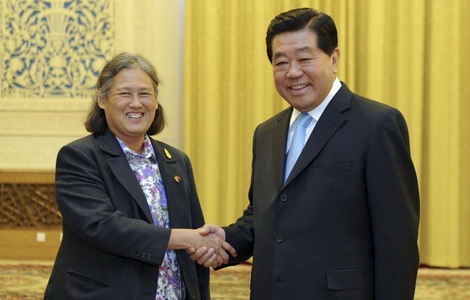 |
|
|
|
|||||||||||
BEIJING - In a bid to better safeguard citizens' privacy, China will publish national standards for personal information protection in the first half of this year, said a senior official on Thursday.
The Ministry of Industry and Information Technology (MIIT) has drafted guidelines for personal information protection in public and business services, and submitted the draft to the nation's Standardization Administration for technical approval, said Ouyang Wu, an official with the ministry.
The non-obligatory guidelines will be supported by related standards regarding technology safeguards, auditing, management and authentication, he said.
"These standards will help determine responsibility before disputes occur and drive enterprises to act in accordance with the guidelines," he said, adding that among those is the "prevention first" principle.
The government will also support third-party professional bodies intervening in the investigation of enterprises, he said.
Chinese experts have called for new legislation following a spate of personal information leaks that sent millions of netizens into panic mode.
In December 2011, more than 6 million user accounts and passwords on CSDN, or China Software Developer Network, the country's largest programmers' website, were made public after hacker attacks.
The situation escalated within days, as several popular social networking and gaming websites also fell victim to a cyber attack, with the personal details of millions of subscribers being published.
In response to these leaks, the MIIT issued a notice on December 28, asking Internet service providers to beef up protection of users' information through better internal management and new technologies.
The country has been considering the law on personal information protection since 2003 but has made slow progress because experts are divided on what information should be protected, Ouyang said.

|

|

|

|

|

|